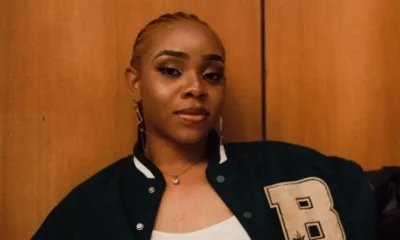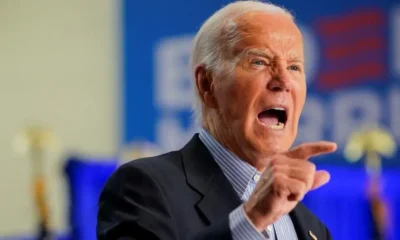In February, former Jazz player Elijah Millsap accused Jazz lead executive Dennis Lindsey of telling him in a 2015 exit meeting, “If you say one more word, I’ll cut your Black ass and send you back to Louisiana.”
The NBA investigation in conjunction with independent outside counsel didn’t substantiate Millsap’s claim.
That didn’t mean the league deemed Millsap’s account to be untrue. The league just didn’t find evidence to corroborate it.
Lindsey denied it. Utah coach Quin Snyder, who was in the meeting, said he didn’t hear that. Jazz executive Justin Zanik, who took notes in the meeting, reportedly denied hearing it. Zanik’s notes didn’t include it (though the idea Zanik would type a racist remark into his notes is a stretch, no matter what Lindsey said).
Lindsey, Snyder and Zanik still work for the Jazz, though.
But even Millsap’s agent at the time, Daniel Hazan, reportedly said Millsap didn’t share the incident with him while playing for Utah.
A contemporaneous second-hand account, while not definitive, would’ve bolstered Millsap’s case. So, after the NBA’s investigation, a question emerged: Why didn’t he produce such a witness?
David Aldridge of The Athletic:
Millsap’s immediate reaction in 2015, he says now, “was, like ‘What?’ Because I was almost on the edge of my chair. Like, ‘What?’ It’s the first thing I said. My second reaction was, I looked at Quin, and Quin didn’t have no reaction. And so I just, at that moment, I was like, whatever, man. I couldn’t believe it. I just shut up. In the sense of thinking about my family, thinking about my future, I didn’t want to risk any of that. So I just literally, I shut up. I don’t remember what happened after that. The only thing I remember is trying to gain my composure as fast as possible, because I knew I had to be on the podium as soon as I left the exit interview (to speak with the local media). I was trying to process it and obviously hold back my emotions, my true emotions as well as my tears. Just try to stay politically correct.”
“I do remember telling people,” he says. “Who I told, the time frame of when I told them, I don’t remember. At the time, I had family issues. I had issues with my agency, my dual agents. I had conflict between those two; we weren’t on the same page. But I do remember telling them at some point. Was it right after? I don’t remember. I felt like I told my brother. At what point, I don’t remember. I felt like I told him. Right after the meeting, I don’t believe I trusted anybody (enough) to tell them — the details, anyway. I may have said something in the way of ‘something crazy happened in that exit interview,’ or something like that. But I don’t anticipate, I wouldn’t tell anybody the details, because I wouldn’t want them to get involved in that. Some of those guys, they were young at the time, but they’re making real money as well. People are making real money, they might say, ‘Man, that’s messed up,’ but let’s be honest. The majority of them are going to stay quiet and continue to make that check.”
Aldridge has many more details on Millsap’s situation, including another agent (Millsap’s uncle, DeAngelo Simmons).
The Jazz were extremely young at the time. Players, including Millsap, have limited power as they’re trying to find their place in the league.
Millsap sharing even more of his story now adds context.
Unfortunately, a lack of evidence makes this situation practically impossible to resolve satisfactorily. Millsap can’t get the justice he seeks. Lindsey can’t clear his name.
Now that more is out in the open, it’s even tougher to see how that changes.
Must See
-




Entertainment
/ 3 days agoFaveSzn’s Revelation: Dating Choirmaster at 10 and Sexual Curiosity
Nigerian singer, Chidozie Ugochinyere, popularly known as FaveSzn, has revealed that she once dated...
By Flying Eze -






Europe
/ 3 days agoWhy Hungarian Prime Minister Orban visited
Two months later, the leaders of China and Hungary met again. Hungarian Prime Minister...
By Flying Eze -






News
/ 3 days agoThree dead and millions without power as Tropical Storm Beryl hits Texas
Man, 53, and woman, 74, killed by fallen trees and third person drowns amid...
By Flying Eze



